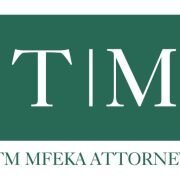Best Drugs & Medical Devices Lawyers in Pietermaritzburg
Share your needs with us, get contacted by law firms.
Free. Takes 2 min.
List of the best lawyers in Pietermaritzburg, South Africa
About Drugs & Medical Devices Law in Pietermaritzburg, South Africa
Pietermaritzburg, located in KwaZulu-Natal province, is subject to South Africa's national legal framework governing drugs and medical devices. This framework is regulated by various Acts, primarily focusing on ensuring the safety, efficacy, and quality of medicines and medical equipment available in the market. The laws address the registration, distribution, and commercialization of pharmaceutical products and medical devices. The South African Health Products Regulatory Authority (SAHPRA) plays a pivotal role in enforcing these laws, overseeing the regulation and ensuring compliance across the healthcare sector.
Why You May Need a Lawyer
There are several situations where legal advice may be crucial in the field of drugs and medical devices.
One may require legal help if involved in the manufacturing or distribution of pharmaceuticals or medical devices to navigate regulatory compliance, licensing requirements, and intellectual property issues. Healthcare practitioners may seek legal assistance for disputes arising from the use of medical devices or prescriptions of pharmaceutical products. Additionally, patients or consumers facing adverse effects or defective products might need legal advice to pursue compensation. In any instance of potential legal violation or litigation involving drugs and medical devices, consulting a lawyer can ensure proper representation and advice.
Local Laws Overview
The regulation and control of drugs and medical devices in Pietermaritzburg are largely dictated by national legislation. Key legal frameworks include:
The Medicines and Related Substances Act: This Act governs the registration, distribution, and regulation of medicines and medical devices, ensuring they meet required safety and efficacy standards.
The National Health Act: While primarily focusing on broader healthcare service provision, aspects of this Act impact the implementation and regulation of medical devices in facilities.
The Pharmacy Act: This legislation regulates the pharmacy profession and the control of medicines and substances within the pharmacy sector.
Additionally, compliance with the guidelines set by SAHPRA is mandatory for all stakeholders involved in the import, manufacture, or export of drugs and medical devices.
Frequently Asked Questions
What is considered a medical device under South African law?
A medical device is any instrument, apparatus, appliance, material, or other article, whether used alone or in combination, for humans, for purposes including the diagnosis, prevention, monitoring, treatment, or alleviation of disease.
Do all drugs need to be registered with SAHPRA before being sold?
Yes, all drugs intended for sale in South Africa must be registered with SAHPRA to ensure they meet the required safety, quality, and efficacy standards.
What kind of legal assistance can a lawyer provide concerning drugs and medical devices?
A lawyer can help with regulatory compliance, litigation support in case of disputes or harm claims, advice on intellectual property rights, and guidance on commercial agreements related to healthcare products.
Are there specific penalties for non-compliance with drug and device laws?
Penalties for non-compliance can include fines, imprisonment, and the suspension or revocation of licenses to operate. The severity of penalties depends on the nature and extent of the non-compliance.
How are medical devices classified in South Africa?
Medical devices in South Africa are classified into categories based on their intended use, the degree of risk they pose to patients, and the complexity of their technology. The classifications range from Class A (low risk) to Class D (high risk).
What should a consumer do if they face issues with a medical device?
Consumers should first report the issue to the supplier or healthcare facility. If not resolved, they may report the problem to SAHPRA and potentially seek legal advice for compensation or remedial action.
Can individuals import medical devices for personal use?
Yes, individuals can import devices for personal use but must ensure that these products comply with South Africa’s regulations. Consulting with SAHPRA is recommended before importing.
Is consent required for administering drugs and devices in healthcare settings?
Yes, informed consent is required from patients before any drugs or medical devices are administered, ensuring they are aware of the risks and benefits involved.
How can a local business start distributing medical devices in Pietermaritzburg?
Businesses must apply for appropriate licenses from SAHPRA and ensure compliance with all relevant laws and regulations governing the distribution of medical devices.
What are the consequences of selling unregistered medicines?
Selling unregistered medicines is illegal and can lead to significant legal consequences, including fines, imprisonment, and other penalties as determined by the court.
Additional Resources
For further assistance, consider contacting:
- South African Health Products Regulatory Authority (SAHPRA) for guidance on drug and device registration.
- The Department of Health - KwaZulu-Natal for regulatory compliance locally.
- The South African Medical Association for support on medical ethics and professional advice.
Next Steps
If you require legal assistance regarding drugs and medical devices in Pietermaritzburg, consider reaching out to a lawyer specializing in healthcare law. Prepare documentation detailing your situation, including any relevant correspondences, purchase details, and medical records. Seeking legal advice early can help resolve issues efficiently and ensure you navigate the complex legal landscape effectively.
Lawzana helps you find the best lawyers and law firms in Pietermaritzburg through a curated and pre-screened list of qualified legal professionals. Our platform offers rankings and detailed profiles of attorneys and law firms, allowing you to compare based on practice areas, including Drugs & Medical Devices, experience, and client feedback.
Each profile includes a description of the firm's areas of practice, client reviews, team members and partners, year of establishment, spoken languages, office locations, contact information, social media presence, and any published articles or resources. Most firms on our platform speak English and are experienced in both local and international legal matters.
Get a quote from top-rated law firms in Pietermaritzburg, South Africa — quickly, securely, and without unnecessary hassle.
Disclaimer:
The information provided on this page is for general informational purposes only and does not constitute legal advice. While we strive to ensure the accuracy and relevance of the content, legal information may change over time, and interpretations of the law can vary. You should always consult with a qualified legal professional for advice specific to your situation.
We disclaim all liability for actions taken or not taken based on the content of this page. If you believe any information is incorrect or outdated, please contact us, and we will review and update it where appropriate.










